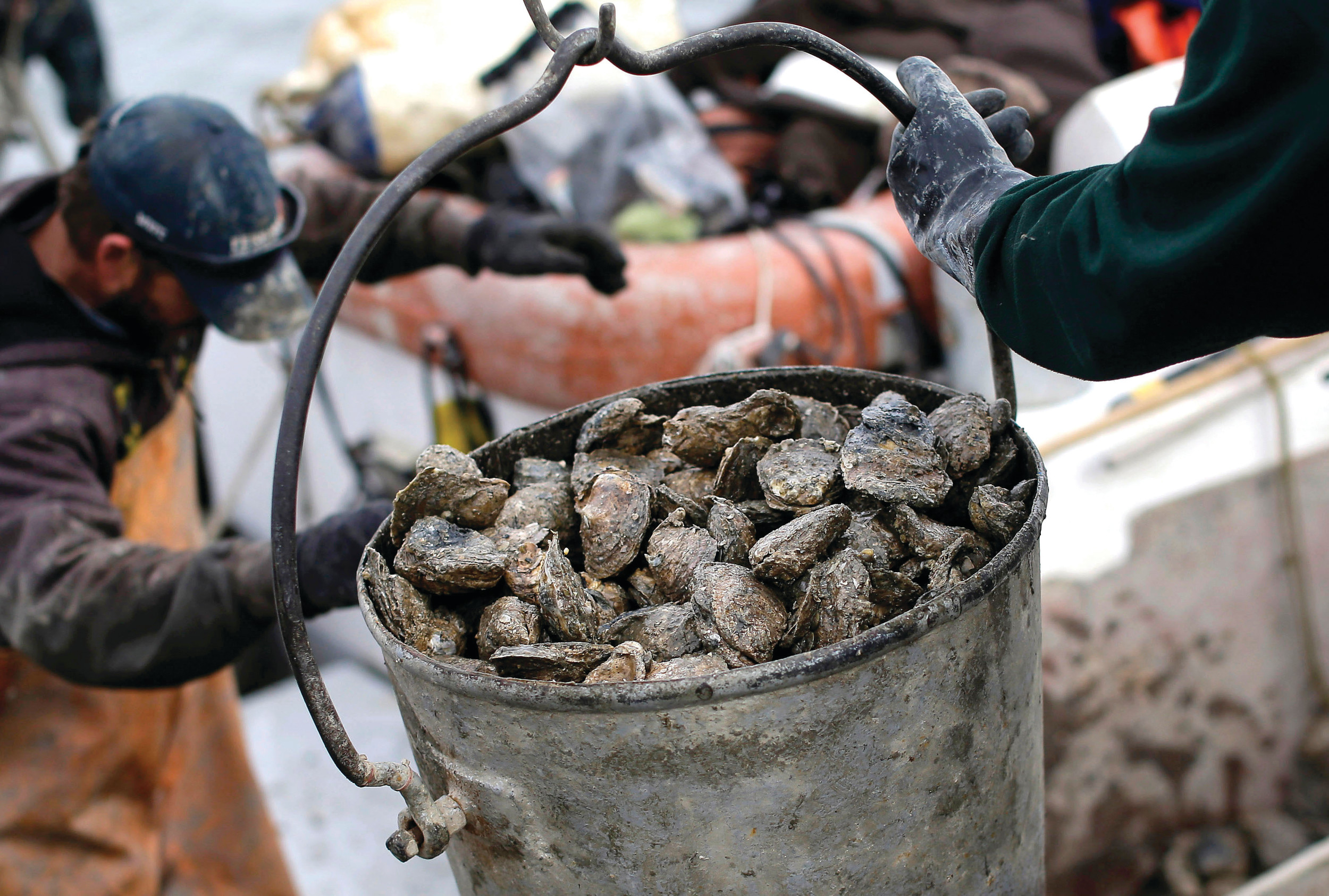Sewer spill closes shellfish harvesting

CHARLESTON - South Carolina officials say a sewer spill has closed shellfish harvesting near Charleston.
State shellfish sanitation manager Mike Pearson tells news outlets in a Wednesday statement the leak in North Charleston has shut down oyster and clam beds around the city. Pearson says harvesting in the Charleston Harbor area will reopen when water quality data indicate bacteria levels are safe.
North Charleston Sewer District spokesman Jarred Jones tells The Post and Courier the leak is estimated to be spilling 200,000 gallons (800,000 liters) per day since Nov. 1. He says a contractor is repairing the breach on a 40-year-old line near the Ashley River.
Another spill in February led officials to order a recall of oysters after roughly 2.4 million gallons (9 million liters) of sewage flowed into the area.
Regulators want new rules for water use
COLUMBIA - Environmental regulators in South Carolina want more authority to manage water use in the state.The board at the Department of Health and Environmental Control voted Thursday for new rules that would apply in seven counties that have no limit on the amount of water that can be withdrawn, The State newspaper reported.
The rules would have to be approved by state lawmakers. But DHEC officials say the rules are needed as huge farms have moved into South Carolina that are using millions of gallons of water each month.
Under the new rules, mega-farms, large industries and other big water users would have to get state permission before using large quantities of water.
DHEC says groundwater levels have been dropping from the South Carolina-Georgia state line east to Lexington County.
"Populations are increasing, irrigated acres are increasing," said Alex Butler, an agency groundwater specialist. "We have a lot more demands on the water, and we don't expect that to stop."
The rules would require DHEC to review water-withdrawal plans and issue permits to those wanting to use large amounts of groundwater.
Butler said underground water levels have dropped from 5 feet (1.5 meters) to 15 feet (4.6 meters) in the area in recent years, During the summer, when large farms irrigate heavily, water levels temporarily have dropped up to 40 feet (12 meters) in some places.
The South Carolina Farm Bureau and the Palmetto Agribusiness Council have opposed the new rules, saying they would be a burden for farmers.
Uranium found in water near leaking nuclear fuel plant
COLUMBIA - Federal regulators say tests shows uranium levels exceeding safe drinking water standards have been found at two locations at a nuclear fuel plant that has leaked in South Carolina.
The State newspaper reported the Nuclear Regulatory Commission and plant operator Westinghouse told a community meeting Thursday night in Columbia that the pollution came from leaks in 2008 and 2011 from a contaminated wastewater line.
The NRC said the uranium-contaminated water is in the middle of the huge fuel plant south of Columbia and has not reached the property boundary.
The NRC's Tom Vukovinsky said that Westinghouse thinks the leaks "are fairly shallow.
Westinghouse is working on a plan to clean the pollution and prevent the spread of the uranium-tainted groundwater.
The plant makes fuel rods for commercial nuclear reactors.
From wire reports
More Articles to Read
